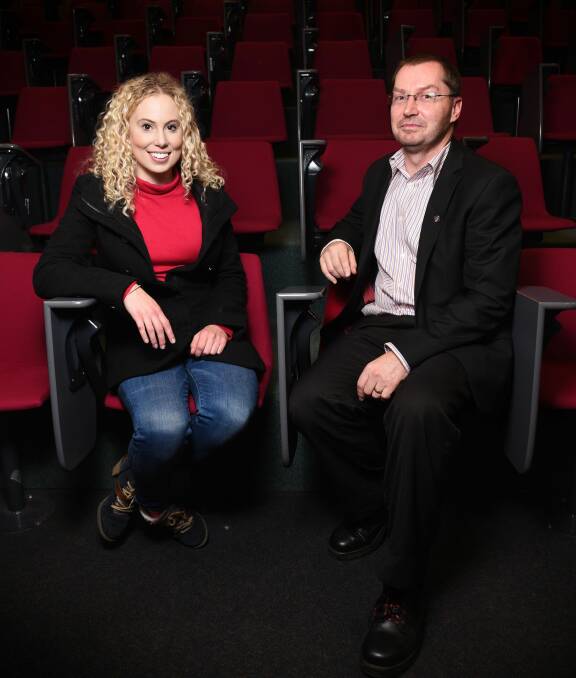
OUR next generation of teachers is already working hard to make bullying a thing of the past.
Subscribe now for unlimited access.
$0/
(min cost $0)
or signup to continue reading
This week, 35 University of Tasmania third year Bachelor of Education students participated in a workshop on bullying, how to recognise and stop it, and how it can affect students into the future.
It is hoped the students can then take this advice and use it on their practical lessons and then in the workforce.
Anti-bullying group Angels Hope co-founder Chloe Cunningham, who knows first-hand just how debilitating bullying can be, took the sessions.
Ms Cunningham was bullied throughout her school life – it eventually became so severe that she was left with serious physical impairments.
About 27 per cent of all Australian students say they are bullied on a weekly basis.
These children then go on to be three times more likely to show depressive symptoms in the future.
The two-hour lesson provided a starting point for our future teachers on what to do if a child in their class is being bullied.
The sessions covered the different forms of bullying, what students who witness bullying can do and why it happens.
Ms Cunningham taught students to “reframe” their thoughts, to focus on what they are good at rather than the negative things other students may be saying about them.
‘It was about making sure these students were aware of what bullying is, how to pick it and what they can do about it,” she said.
“We want the teachers of today to make a difference in the classroom and also change the school’s cultural environment.
“The feedback we had from the students was really positive.”
University of Tasmania course coordinator Darren Pullen said allowing the students to hear from someone in their own community who had been bullied themselves made the workshop even more valuable.
“Because schools are busy places sometimes teachers aren’t picking up on the signs and symptoms if someone’s being bullied,” Dr Pullen said.
“It’s a lot better when the students can do things where they participate as teachers rather than sitting in a lecture just listening.
“We also looked at the bullies themselves and what issues they might have.”
Young people who bullied others were found to have a one in four chance of having a criminal record by the age of 30, according to Dr Pullen.
The session was taken in the Advanced Health and Physical Education course.

